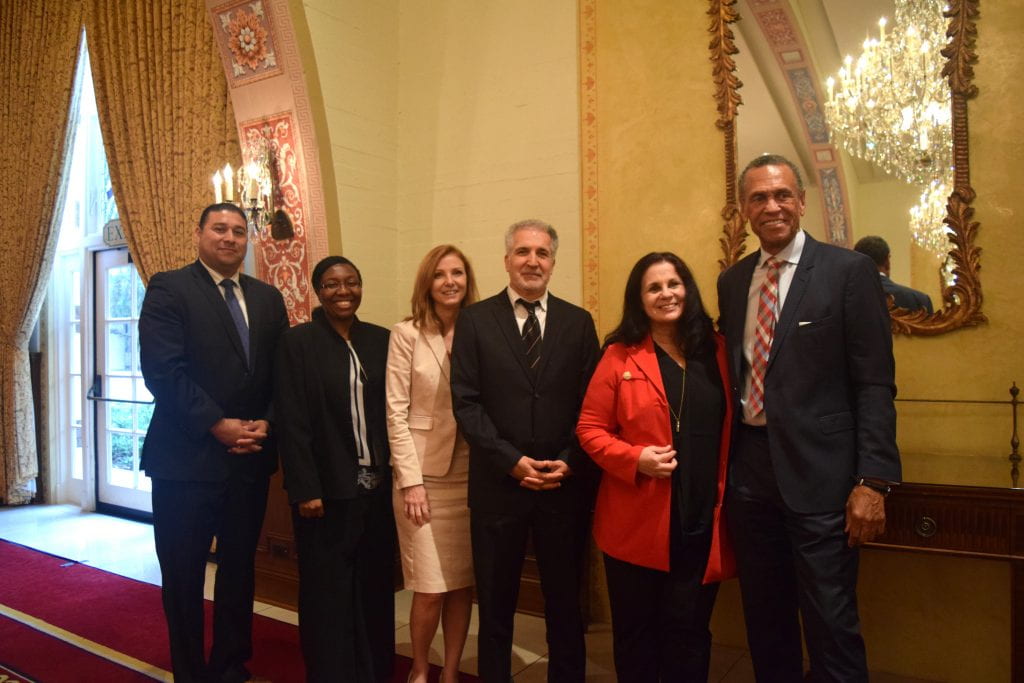As part of the Chamber’s L.A. Regional STEM Hub initiative, the annual State of STEM convening addressed how leaders throughout our community are sparking change and diversifying STEM fields in the workforce, higher education and the K-12 pipeline, with a focus on the cradle-to-career STEM pipeline.
More than 150 educators and administrators convened at Town and Gown on May 31 for State of STEM to discuss best practices in the Science, Technology, Engineering, Mathematics (STEM) field and how best to prepare our youth to engage and succeed.
Representatives from K-12 education, public higher education, civic organizations, and elected leaders discussed how to pave the way for high school and community college graduates to enter the workforce with skills in the growing STEM industry.
“We are all partners in the ecosystem of education and talent development, twin engines that drive economic prosperity”, said Thomas Sayles, senior vice president for USC University Relations, “the challenges of preparing our region and the next generations for the opportunities afforded by the growing life science, biotechnology, and health innovation fields will not be met by any single sector. We must all work together.”
The morning panel was moderated by Sayles and included representatives from California State University Dominguez Hills and East Los Angeles College (ELAC).
“There are many cross partnerships among higher education institutions that support students on STEM related tracks and we must continue to build those partnerships,” said Miguel Dueñas, associate dean of student services at ELAC.
Liisa Bozinovic, Executive Director of Biocom, a trade group based in San Diego, also presented and discussed the future of STEM industry confirming that the life sciences is one of the strongest economic engines in our state. According to their recent report, in the last five years, employment in the life sciences in California grew by 10 percent, representing some 360,000 jobs, many of them high-paying. The average industry wage for Southern California is $93,000, and job opportunities are spread across the spectrum of educational attainment.
The event was hosted by the Los Angeles Chamber of Commerce and the University of Southern California.

